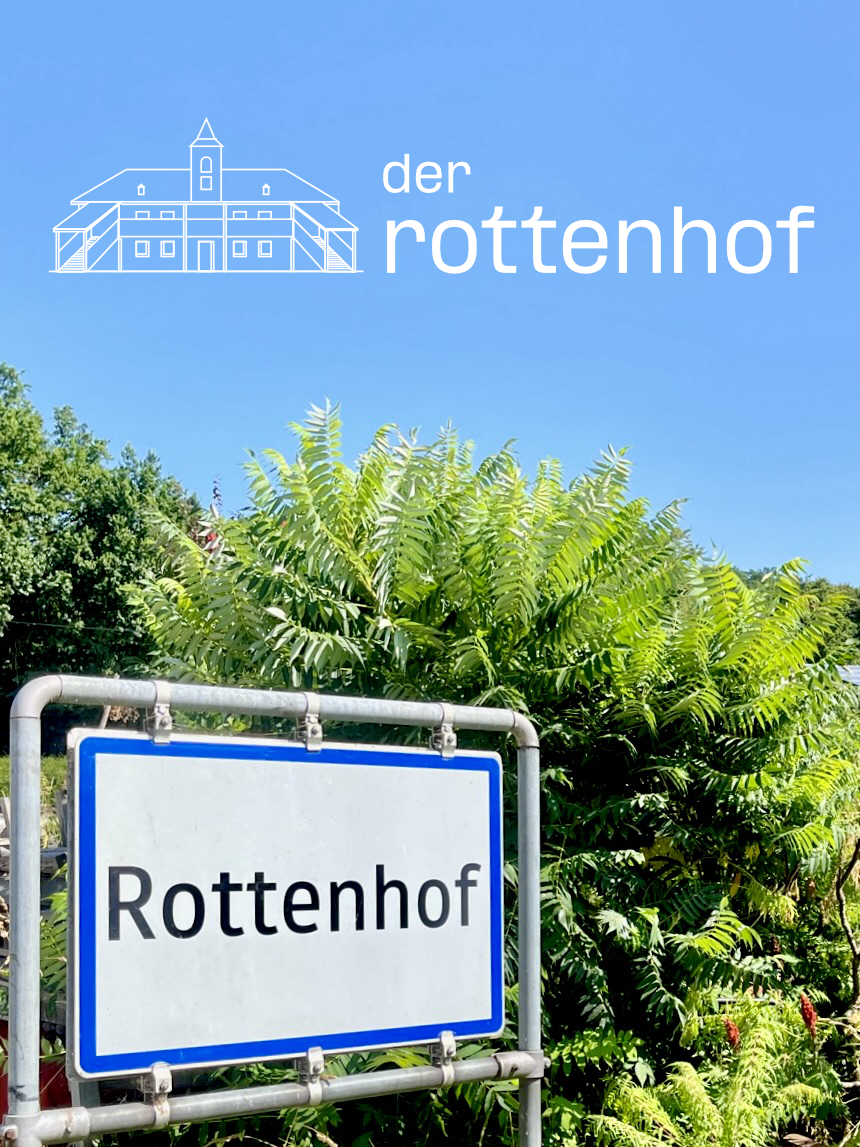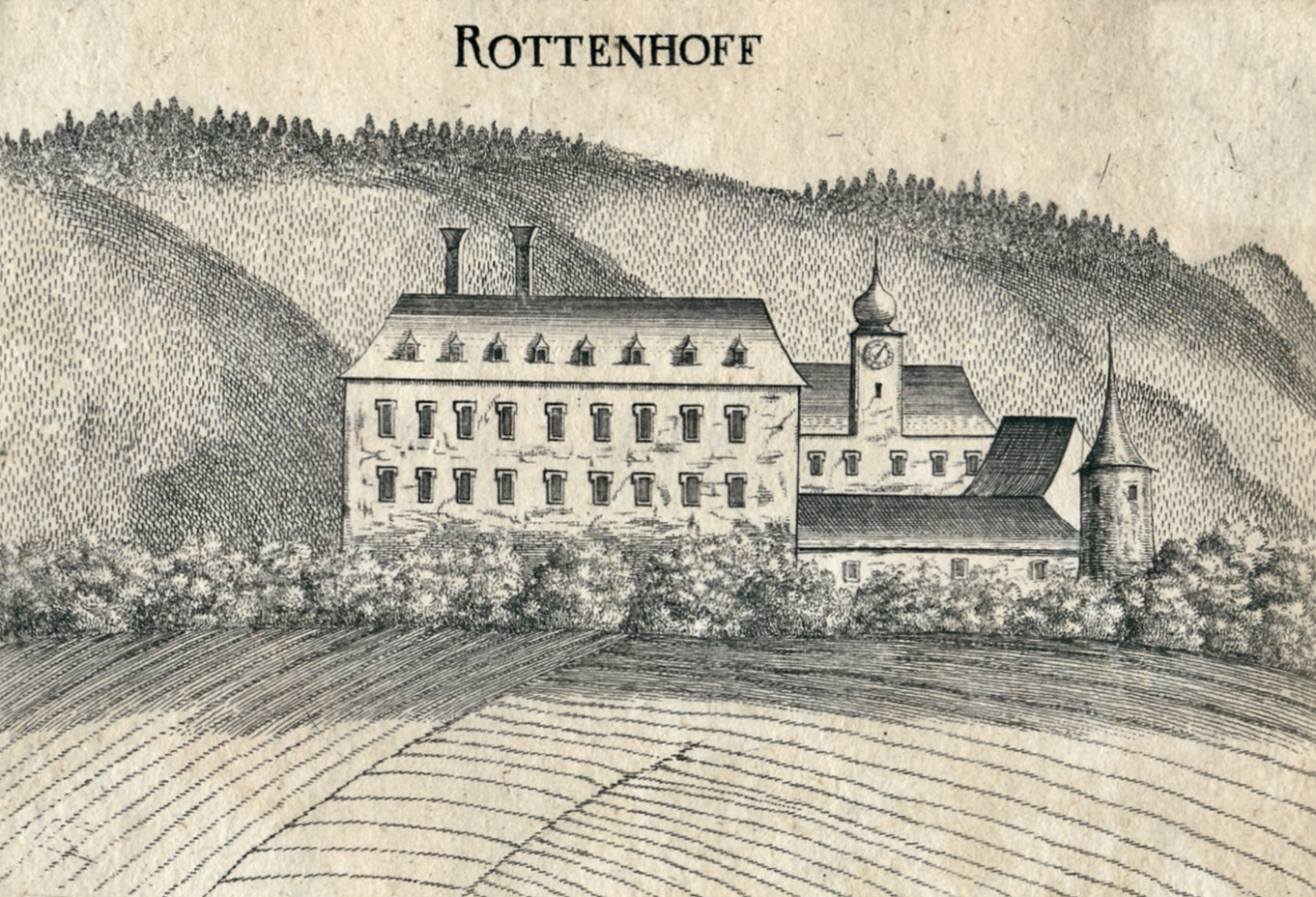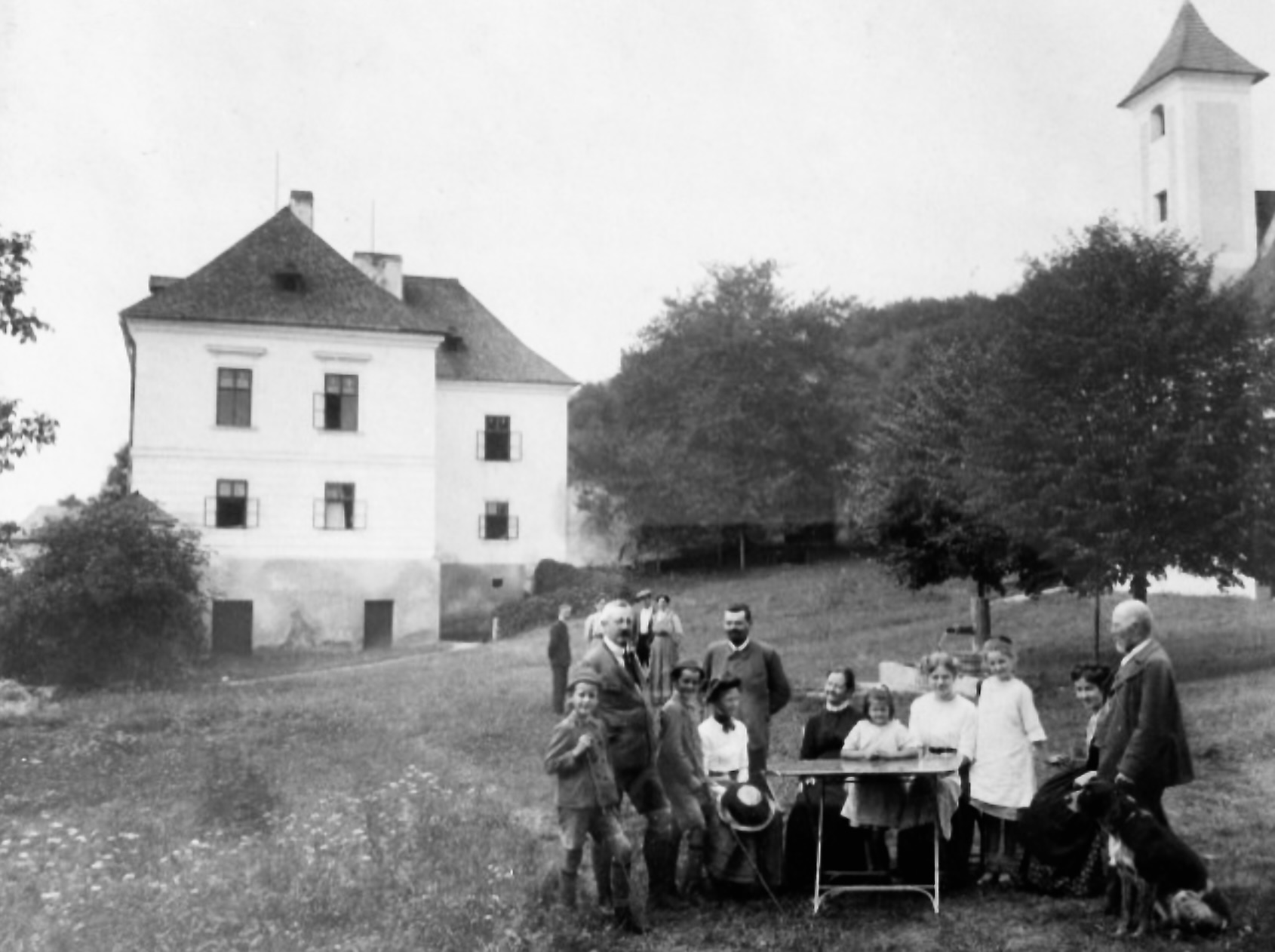
accommodation & events: booking@rottenhof.at
General inquiries: office@rottenhof.at
Telephone: +43 664 1807915
Address:
Rottenhof
Rottenhof 15 - Schloss
3680 Rottenhof | Hofamt Priel
by car:
A1 exit Ybbs a.d.D., Pöchlarn or Melk.
by train:
Western Railway Line - station Ybbs/Donau or Amstetten - We’d be glad to give you a ride!
by bike:
Danube Bike Trail | Krems - Melk - Persenbeug

For more than seven centuries, Rottenhof—once known as Schloss Rottenhof—has stood as an architectural jewel and a sanctuary of strength and serenity for the cultivated few.
Originally, the property was a feudal estate granted by the ruling sovereign. In 1395, it was bestowed by Duke Albrecht IV under the name "Rothhof zu Persenbeug." At the time, the three-story main building had an L-shaped floor plan. The estate already included the two-story utility building with a small bell tower, which has since been known as the Hunting Lodge, following visits by Emperor Maximilian. According to legend, Emperor Maximilian I often stopped at Rottenhof during his hunts to refresh himself with the estate’s excellent spring water. It is said that he was the one who had the spring enclosed in marble.
After the year 1672, the Rottenhof was significantly reduced in size. This beautiful estate had a variety of owners over time: Following a series of feudal tenants under the regional prince, in 1533 Mang Irnfried was granted exemption from feudal duties by King Ferdinand I, who in the same year purchased the Altenmarkt lordship and made Rottenhof its administrative center. About one hundred years later, the Hoyos family acquired the house and estate, which later passed into the hands of the Herberstein, Offenbach, and Preising families, before being repurchased by the Hoyos in 1720. From 1790 onward, the Rottenhof belonged to the Habsburg-Lorraine family.

The current owners fell in love with the walls, gardens, meadows, and the surrounding landscape—and embraced this hidden gem with heart and vision. A family devoted to meeting challenges and high standards with a forward-thinking spirit, setting a new, contemporary standard for sustainability and humanism.
The cosmopolitan yet sustainable lifestyle of the owners gives the Rottenhof a wonderful flair of generosity, passion and the promotion of idealistic values in a time of widespread change. As a value that must be passed on to future generations, the edible landscapes and the permaculture garden have also been created here, which in turn gives the refuge a special and precious character.